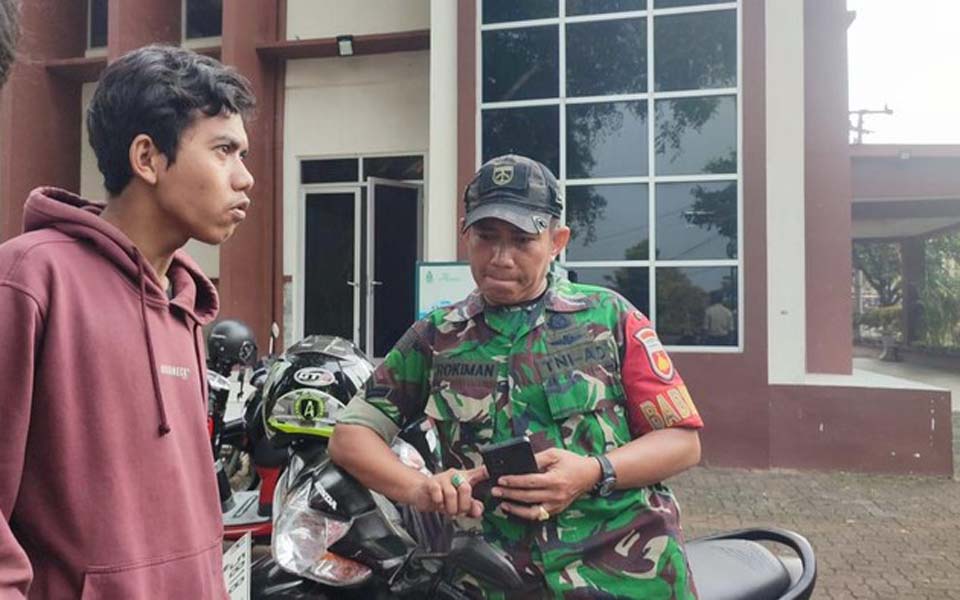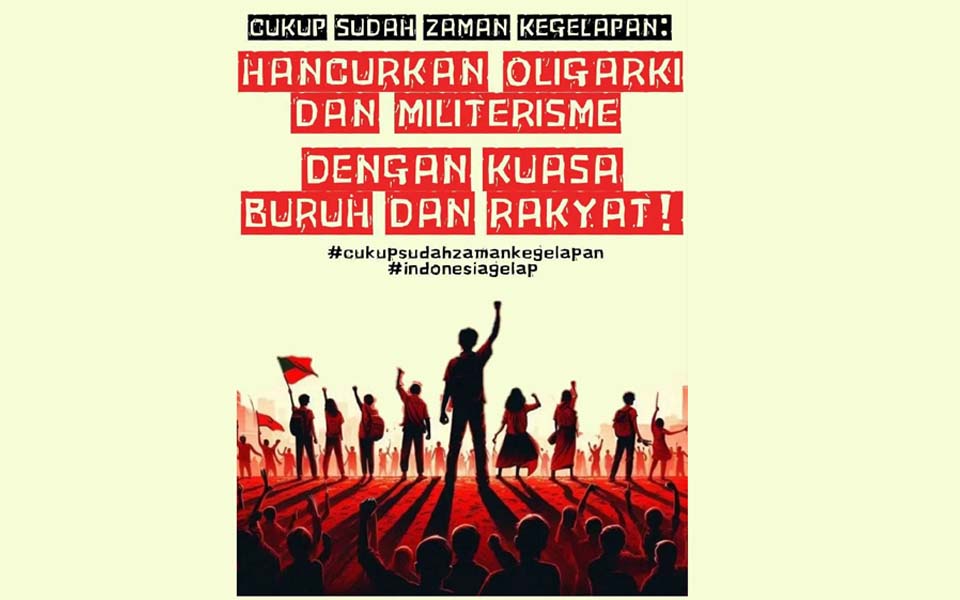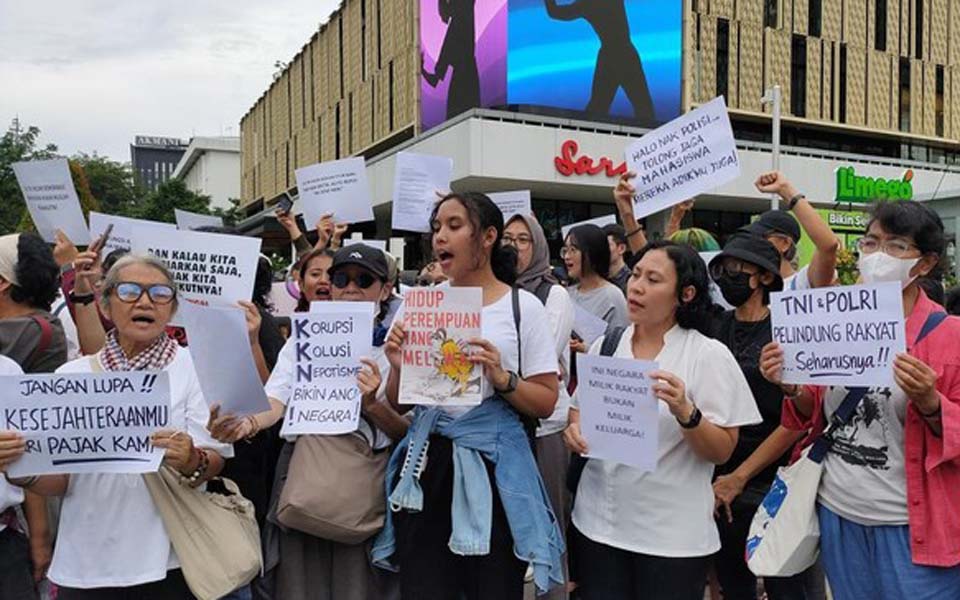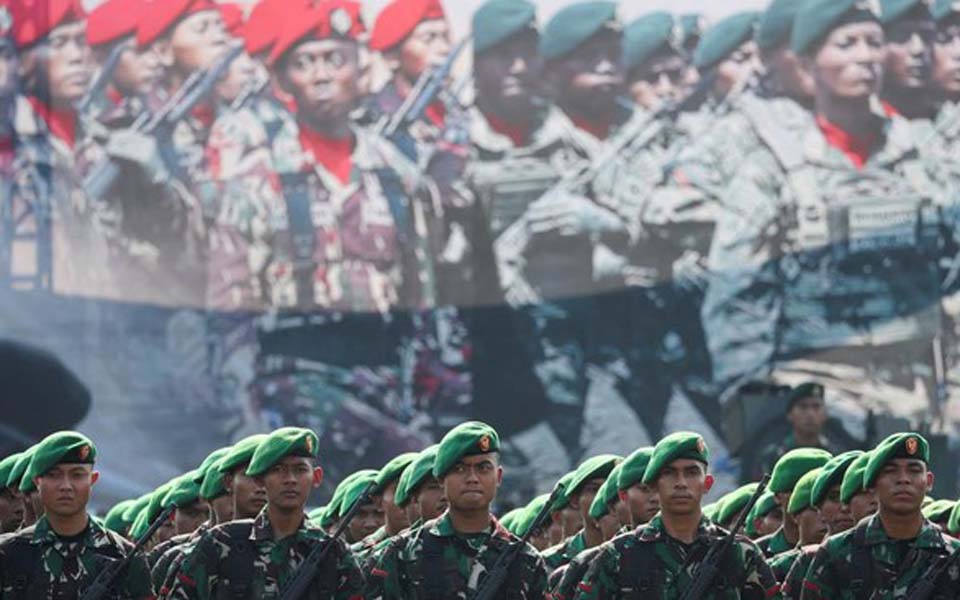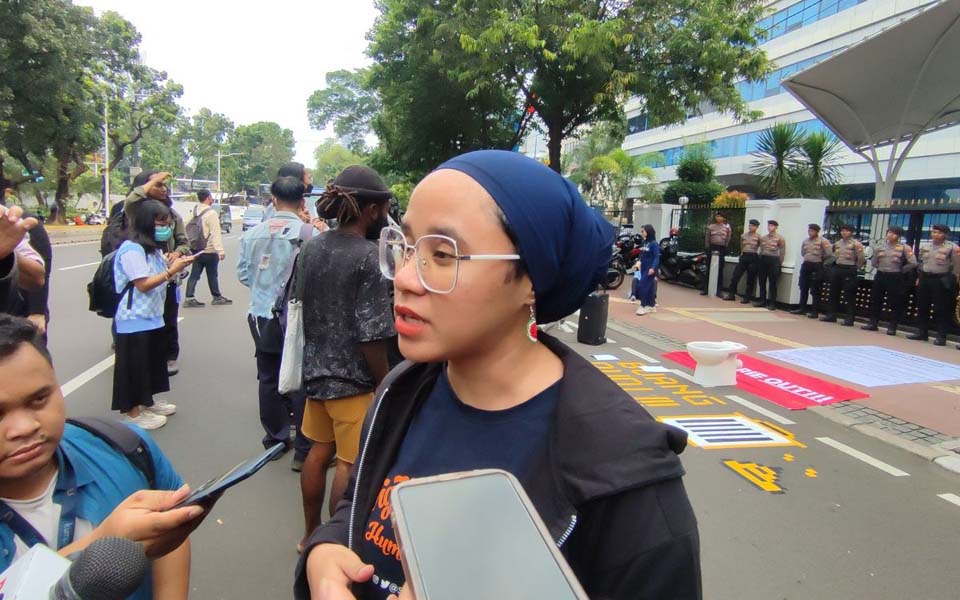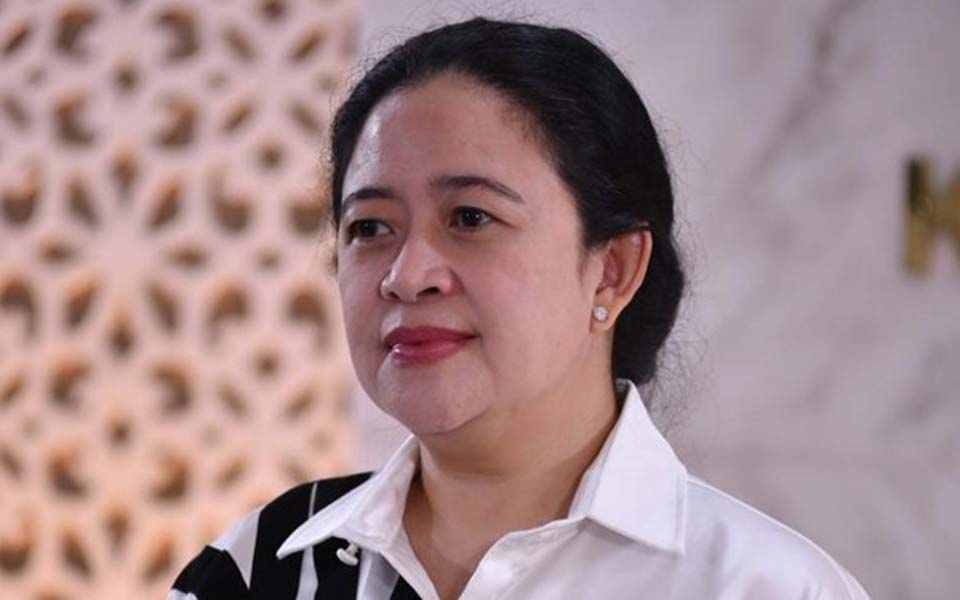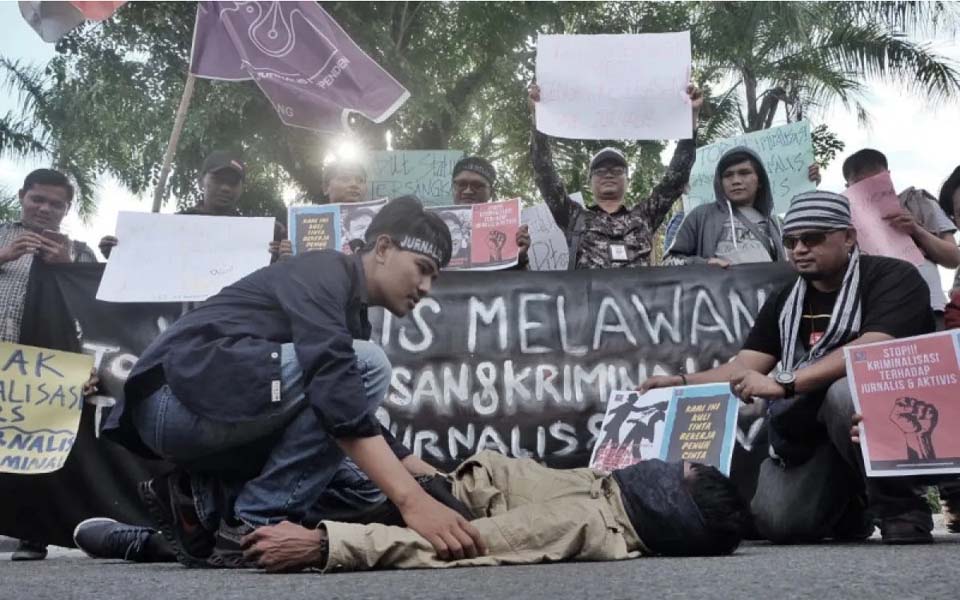Kristian Erdianto, Jakarta – During a working meeting with the House of Representatives (DPR) Commission I, Defense Minister Prabowo Subianto explained the concept of defense and security which he will pursue over the next five years.
According to Prabowo, the concept of defense and state security must be based on a total people’s defense (pertahanan rakyat semesta), a defenses doctrine which has been followed by the Indonesian nation up until now.
Because of this therefore, if at some time Indonesia is involved in a war, either a physical or non-physical one, then every citizen should be involved.
“We understand and comprehend that perhaps in technological terms perhaps we can’t defeat the technological power of other countries, so our defense is based on the idea or concept of a total people’s defense”, said Prabowo at the parliamentary complex in Senayan, Jakarta, on Monday November 11.
“If we are forced into a war, the war which we will prosecute is a perang rakyat semesta. The concept of the total people’s war [English]”, he continued.
Prabowo asserted that national defense should indeed not just be reinforced by the TNI (Indonesian military) as the main component. He is convinced that Indonesia could not be occupied by another country if all of the people become components of national defense.
According to the former army special forces (Kopassus) commander, what needs to be built is a reserve component which is based on all sectors. Nevertheless, each citizen would be entitled and obliged to join the National Defense Program (Program Bela Negara).
“This has been Indonesia’s doctrine up until now, born out of our history, that each citizen is entitled and obliged to take part in national defense”, said Prabowo.
“This is what will be the focus the conceptual preparation and implementation of defense organisation and our national defense for the next five years”, he continued.
National Defense Program
The National Defense Program was first conceived by Prabowo’s predecessor, former Defense Minister Ryamizard Ryacudu in early 2014. When the program was first mooted, it attracted support and opposition from the public.
During the handover ceremony of the Defence Minister to Prabowo, Ryacudu took the opportunity to relate how he was once summoned by President Joko “Jokowi” Widodo. The president asked Ryacudu to conduct a national defense program socialisation and establish the legal basis for it.
Based on data from the Defense Ministry, as of July 2019 the National Defense Program has produced 83,458,532 cadres.
In addition to this, the Defense Ministry has signed Memorandums of Understandings (MoU) with 12 ministries or state institutions, 39 tertiary education institutions and 37 ormas (social or mass organisation) to coordinate the organisation of National Defense Awareness Guidance (Pembinaan Kesadaran Bela Negara).
These national defense activities are based on Article 4 Paragraph (1) of the National Resources Management Law (UU PSDN) which stipulates that all citizens are entitled to and obliged to take part in national defense efforts which are organised under the National Defense Program.
Article 4 Paragraph (2) meanwhile states that the involvement of citizens in national defense efforts shall be organised through citizenship education, obligatory military based training, voluntary or obligatory service as an officer with the TNI and service in accordance with an individual’s profession.
Obligatory military based training applies to citizens as candidates for the reserve component. The reserve component is prepared for deployment through mobilisation to augment and strengthen the forces and capacities of the main component or the TNI in confronting military threats.
Then, Article 31 regulates the issue of forming the reserve component which is made up of four stages: registration, selection, basic military training and designation.
Prabowo also believes that there is a need to build a reserve component which is based on all sectors and it is hoped that it will be able to support the organisation of defense and state security.
“We must prepare supporting components from all the Indonesian people from all sectors whether they are farmers, fisherpeople, the private sector, academia, ormas or parpol [political parties]. This will become the support component of our national defense”, said Prabowo.
“This is what will be the focus of preparations and the organisation of our defense and state security in the future”, he said.
Education ministry involvement
Related to the formation and structuring of the reserve component, Prabowo said that they will involve the Ministry of Education and Culture.
“There will of course be a big role played by ministries and institutions outside of the defense [ministry], as an example we should cooperate with the education ministry to put together the reserve component”, said Prabowo.
Prabowo said that the national defense system is not just made up of military defense but also non-military defense, and this is both physical and non-physical.
Physical military defense is made up of the main, reserve and supporting components. The main component is the TNI while the reserve and support component is made up of elements outside of the TNI.
According to Prabowo, the education ministry will later play a big role in education and training for the reserve component.
“Education, reserve officer training, then also training for the reserve component will have a large role for the education ministry at SMA [senior high-schools] and even earlier perhaps at SMP [primary schools] and also tertiary education institutions”, said Prabowo.
“As an example, if we look at America, perhaps 20 percent of officers are sourced from the military academy, 80 percent are reserve officers from universities”, said the former general.
Relaying on the people
Commission I member from Prabowo’s Greater Indonesia Movement Party (Gerindra) faction, Fadli Zon, said he agreed with the total people’s defense concept outlined by Prabowo.
According to Zon, national defense should not just rely on the TNI, but also the people who are trained through the National Defense Program.
“Our defense must indeed rely on the ordinary people who are trained in the National Defense Program, not just the trained military components but the people who are also trained. I think this is what can be hoped will defend the nation and the state under an emergency and critical situation”, said Zon following the working meeting.
Zon added that the concept of a total people’s defense as outlined by Prabowo is in accordance with the PSDN Law which was ratified by the parliament in late September.
“So with this we hope that the total people’s defense will become a real doctrine, not just a doctrine on paper”, said the Gerindra deputy chairperson.
Zon however denied allegations that the National Defense Program is the same as military conscription as applied by North Korea, South Korea and Singapore.
In its implementation, the National Defense Program will not be obligatory, although social organisations can voluntarily take part in national defense training and education. On the other hand, said Zon, there is no budgetary item designated for organising a military conscription program.
“It must also be seen from the budget, the budget for military conscription would be quite big and I think it is not yet reflected in yesterday’s budgetary posture if it is for an amount which is very big”, said Zon.
Concerns over militarisation
Prior to its enactment in September, the draft law (RUU PSDN) had attracted criticism from civil society organisations. Indonesian Human Rights Watch (Imparsial) researcher Batara Ibnu Reza was of the view that the law is militaristic in character.
He said that there is an effort to militarise civilians through the National Defense Program under the law.
“Impartial is of the view that under this draft law national defense approach tends to be militaristic. This is because it is unavoidable that there are allegations of efforts to militarise civilians through the National Defense Program”, said Reza during a public hearing with Commission I at the parliamentary complex in Senayan, Jakarta, on August 21.
Reza believes that there are other irregularities in the draft PSDN law, namely the integration of the concept of national defense with the concept of the reserve component.
According to Reza, the National Defense Program should refer to a position and actions which do not have to always be realised under the reserve component.
“Under this RUU there appears to be a simplification. Looking at national defense from a cognitive position while the reserve component is more physical”, said Reza.
[Translated by James Balowski. The original title of the article was “Konsep Pertahanan Rakyat Semesta Lima Tahun ke Depan ala Prabowo...”.]






